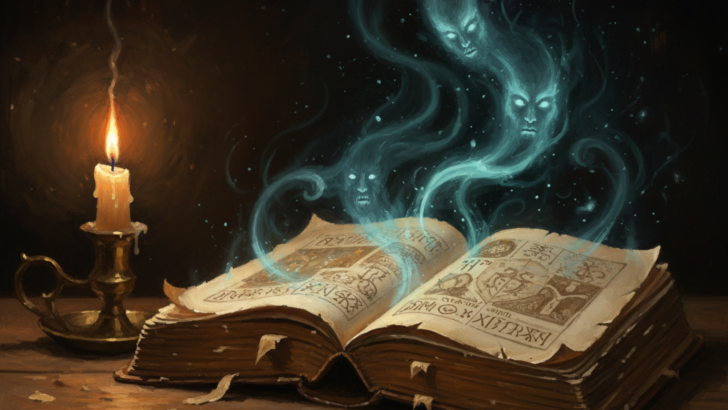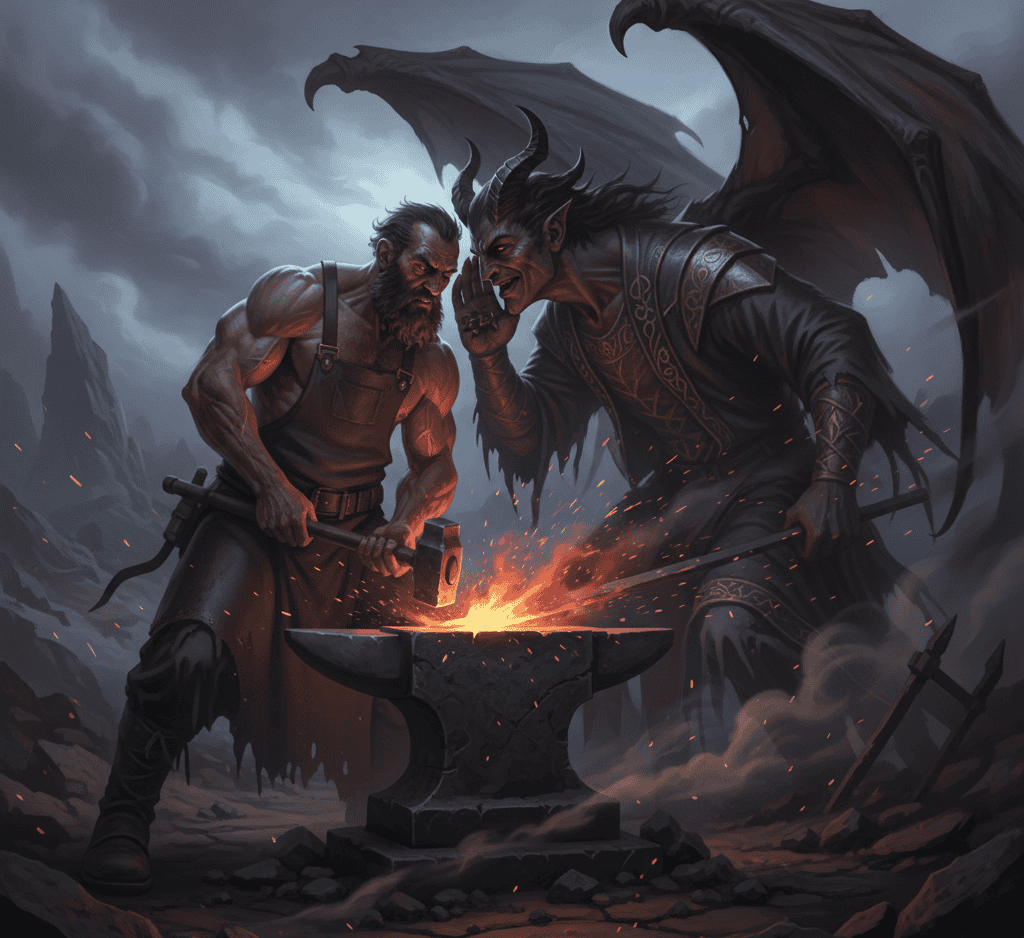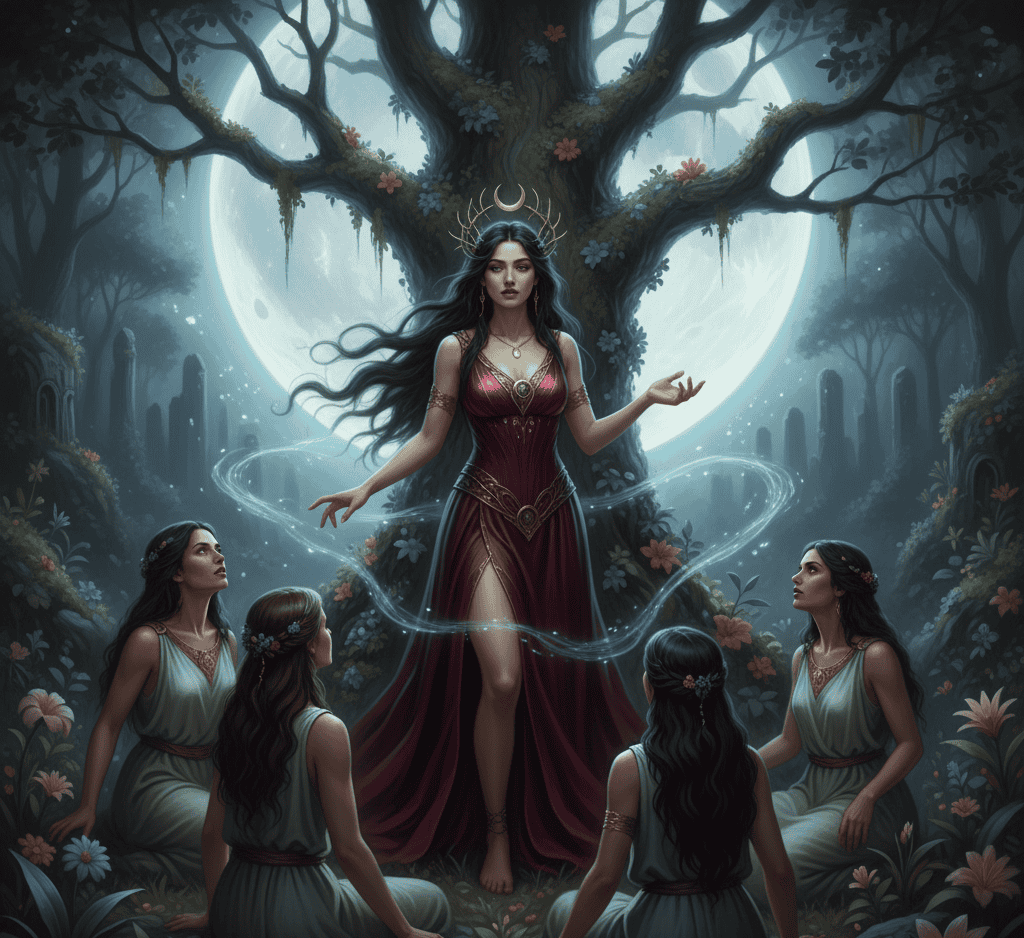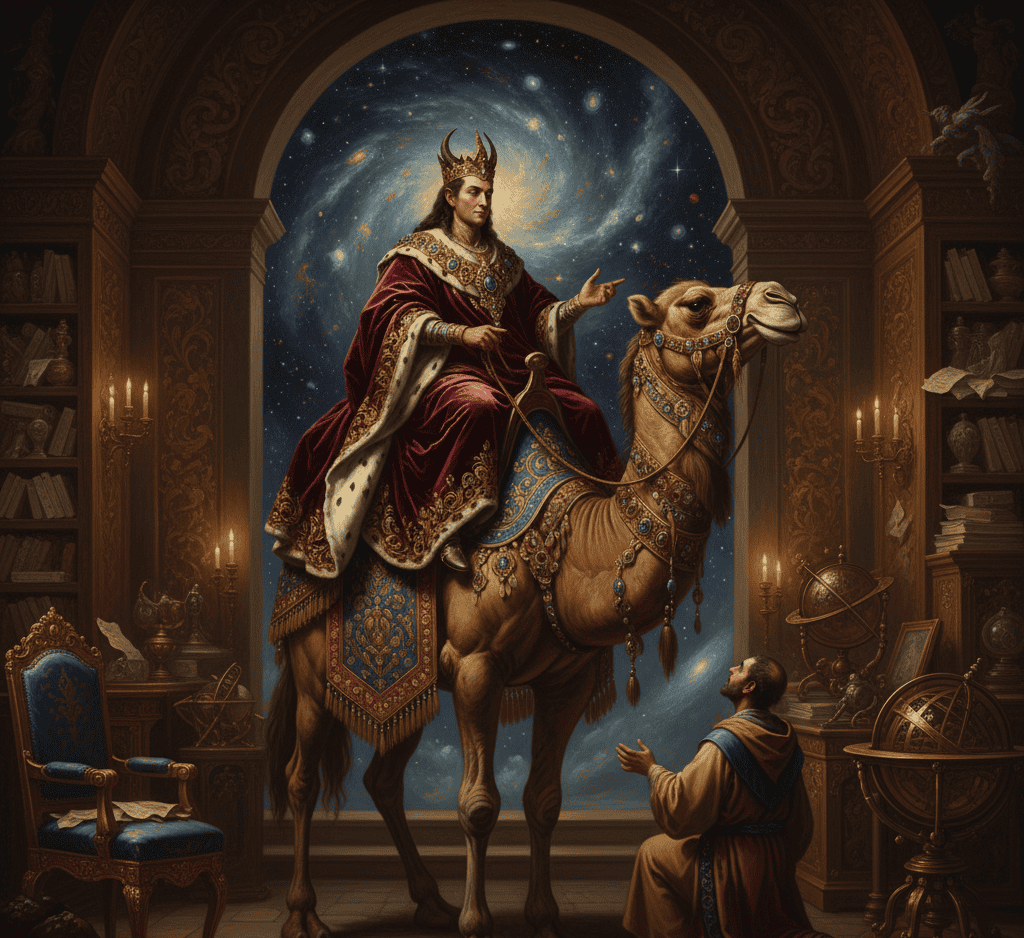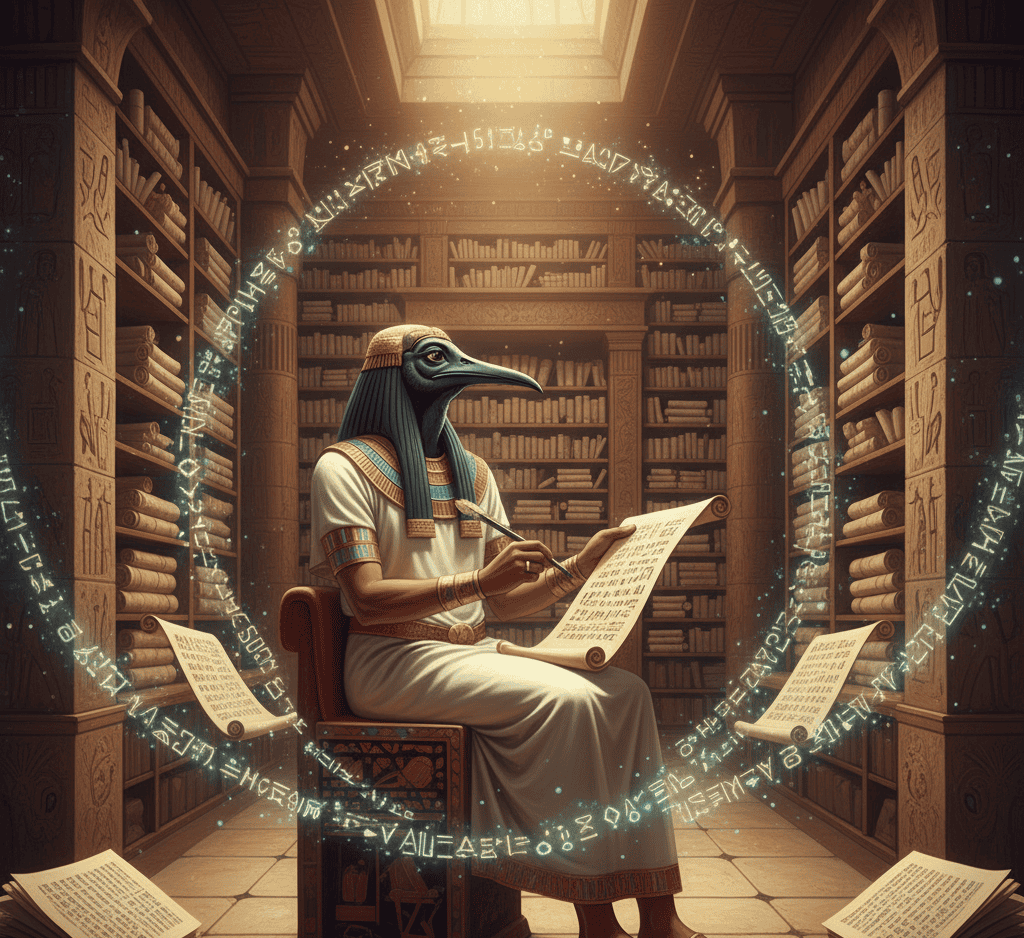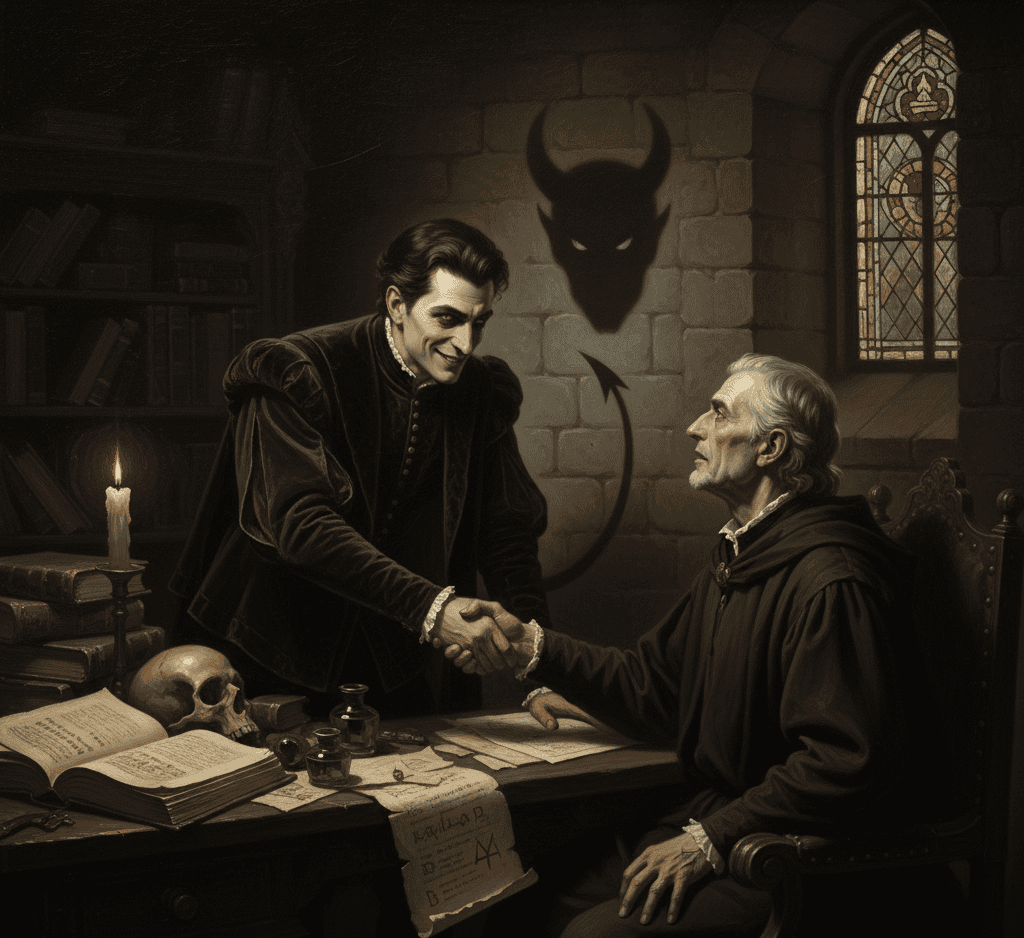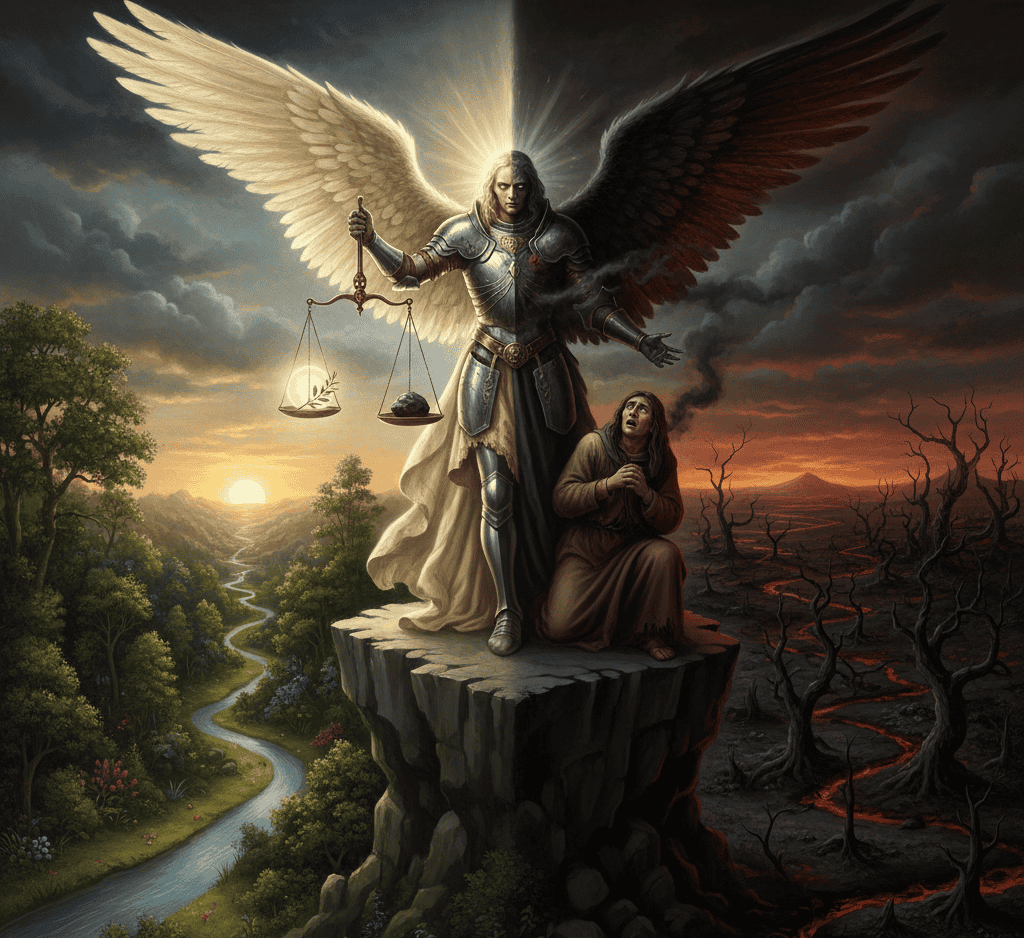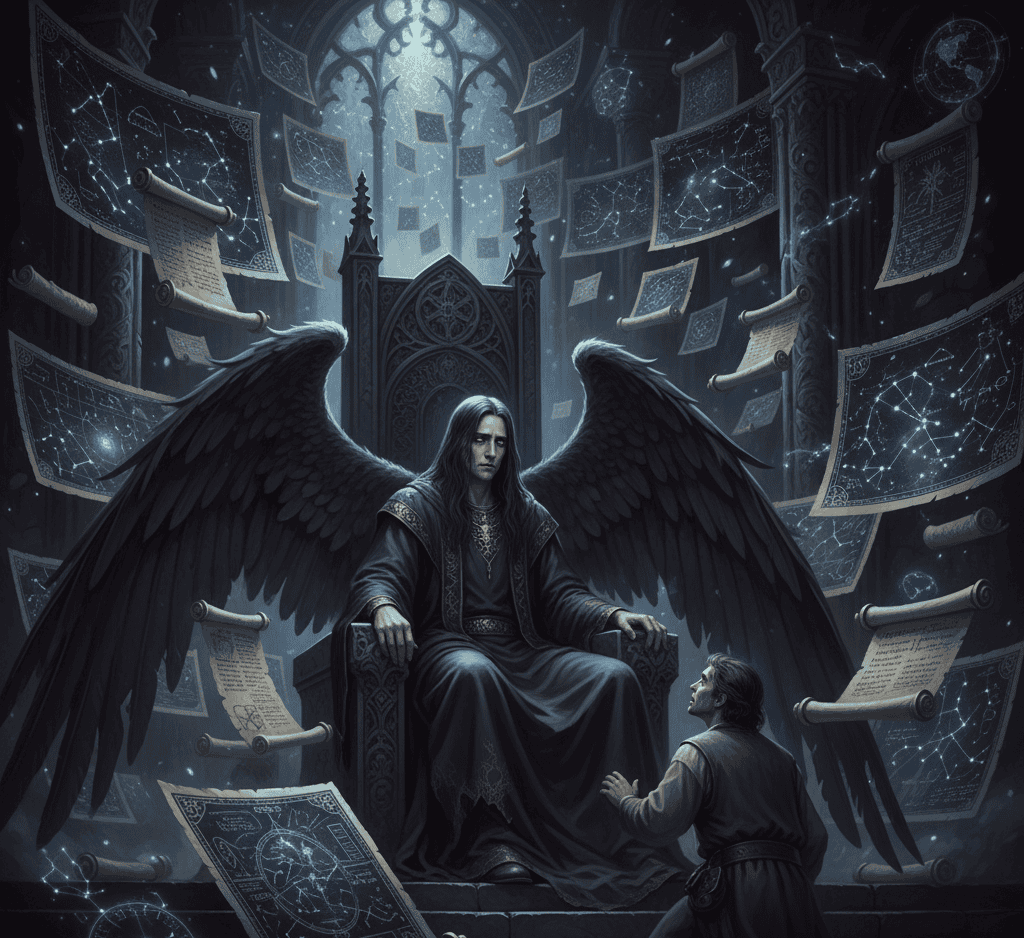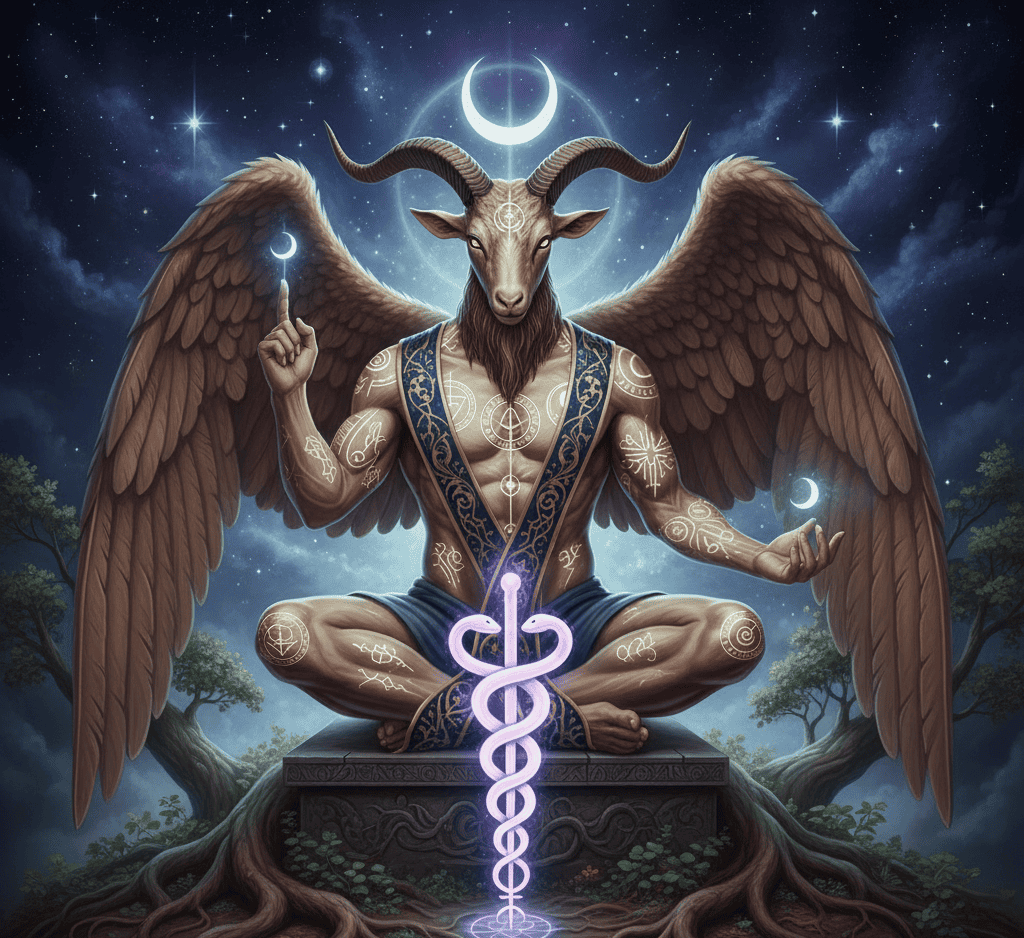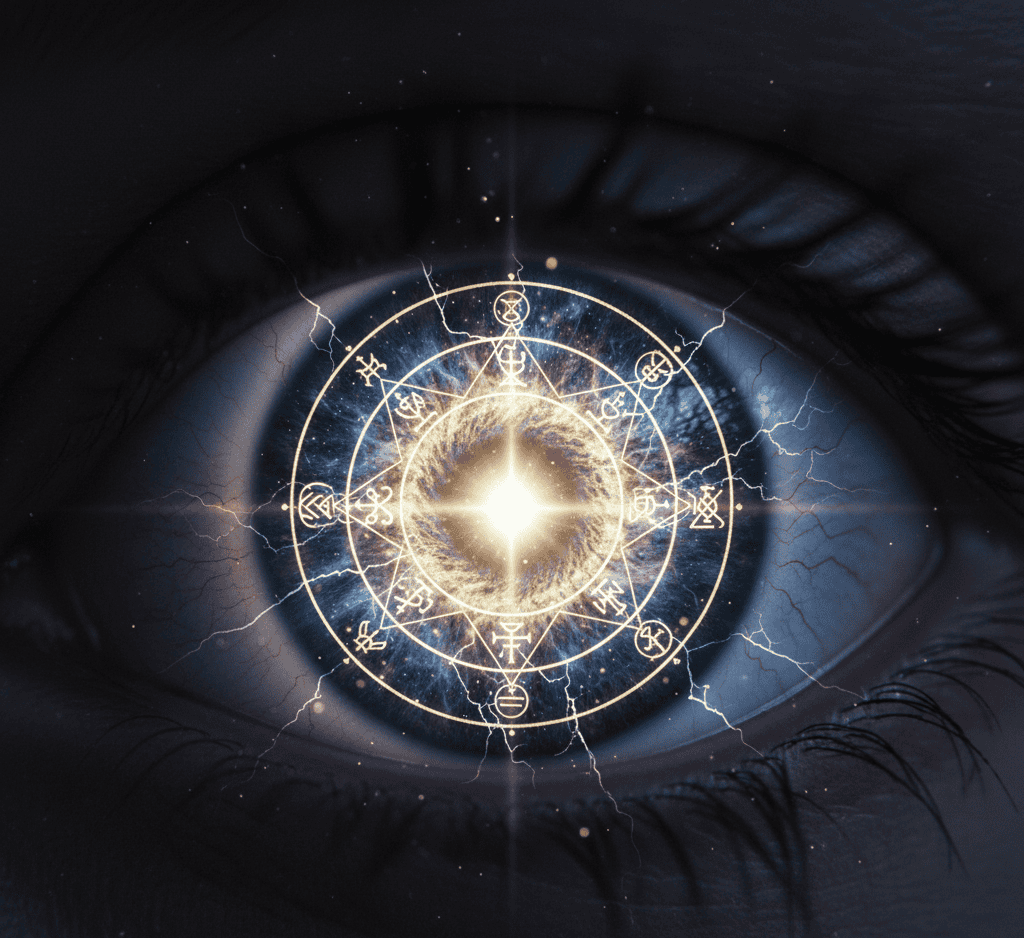There are stories whispered in the dark about spirits that offer knowledge no mortal should have.
Tales that speak of beings who promise wisdom, power, or understanding in exchange for something that can never be given back.
Across cultures and centuries, these figures appear again and again under different names, often disguised as mentors, angels, or tricksters.
Whether they are demons, gods, or something stranger, those who seek them out rarely leave unchanged.
Here are eight spirits said to teach forbidden knowledge if you dare to listen.
1. Azazel – The Tainted Teacher
Azazel’s name appears in ancient Hebrew texts, often connected with the wilderness and sacrifice.
But later legends painted him as the one who descended to Earth and taught humans how to forge weapons, create ornaments, and use magic.
He gave humanity beauty and destruction in equal measure. Some say Azazel still wanders the wastelands, whispering to smiths and soldiers, urging them to improve their craft no matter the cost.
His story warns us that knowledge, once shared, can never be contained. A spark of inspiration can easily become a wildfire.
And yet, how many of us could resist learning from someone who offers mastery of the forbidden?
2. Lilith – The First Rebel
Long before her name became linked with the night, Lilith was said to be the first woman – Adam’s equal, not his servant.
When she refused to bow, she left Eden and became something both feared and admired.
Legends claim she later whispered to women in dreams, teaching them secrets about independence, power, and pleasure that men sought to suppress.
In folklore, Lilith’s knowledge is dangerous because it frees. Her teachings are not spells or curses but self-awareness and defiance.
To learn from her is to understand your own worth, and that kind of wisdom has always terrified those who seek control.
3. Paimon – The Monarch of Mysteries
Paimon is a name that appears in grimoires from the Middle Ages, described as a regal spirit who rides a camel and commands legions of followers.
He is said to teach science, philosophy, and hidden arts, and to reveal the structure of the universe to those who summon him correctly.
But Paimon is not just a tutor of knowledge; he is a test. He demands respect, ceremony, and loyalty.
Those who summon him for greed or curiosity often find themselves overwhelmed by his power.
His lessons, they say, are only for those ready to understand that true wisdom always has a price.
4. Thoth – The Scribe of the Gods
From ancient Egypt comes Thoth, the god of writing, knowledge, and magic. It was he who taught humanity to record thought, to measure time, and to speak with purpose.
The priests said Thoth wrote the Book of the Dead, guiding souls through the afterlife, and perhaps wrote other books, hidden ones, that could grant power over life and death itself.
Unlike darker spirits, Thoth’s teachings seem almost generous. But even divine knowledge can be destroyed when used carelessly.
The Egyptians believed only those pure of heart could read his secret words safely. For everyone else, wisdom too great would burn the mind like fire.
5. Mephistopheles – The Trickster Scholar
If you’ve heard the story of Faust, then you know Mephistopheles – the smooth-talking spirit who offers a man every secret of the world in exchange for his soul.
Mephistopheles is not brute evil. He is clever, persuasive, and even charming. His greatest talent lies in making his victims believe they made their own choice.
He teaches philosophy, alchemy, art, and language, but always in ways that twist the truth. His knowledge is never free of consequence.
Every answer he gives comes with another question that gnaws at the soul. It is said he teaches best through regret.
6. Samael – The Poisoned Light
Samael is a complex figure, appearing in both angelic and demonic forms. Some call him the Angel of Death, others the Venom of God.
Legends say he once taught humans about justice and balance, but that he grew bitter watching them twist divine law into cruelty.
Now, he appears as both guide and destroyer, offering insight into good and evil so deep it can unmake a person’s certainty.
Those who encounter Samael claim he forces them to face truths they wish they didn’t know.
His lessons are not about power but understanding the fragile boundary between creation and destruction. He is, perhaps, the most honest teacher of them all.
7. Astaroth – The Keeper of Secrets
Astaroth’s name echoes through medieval demonology, described as a noble being who reveals the history of the heavens and the fall of angels.
He is said to know every secret of time, the origin of matter, and the destiny of souls. But his knowledge is tainted by sadness.
Many tales portray him not as cruel but as a weary, fallen scholar who still remembers what it was like to be divine.
To those who summon him, Astaroth offers answers that reshape how they see the universe. He warns that once you know the truth, you can never return to ignorance.
Some who have called him say the real curse is never being able to see the world as simple again.
8. Baphomet – The Union of All Things
Few symbols stir as much fascination as Baphomet—the horned, winged figure representing both male and female, human and divine.
Though often misunderstood, Baphomet was never about evil. Instead, this being represents balance, unity, and enlightenment.
Those who seek Baphomet are said to gain knowledge of transformation – how to merge light and shadow, reason and instinct.
But such wisdom can fracture the mind. To understand everything is to stand on the edge of madness.
The followers of Baphomet often describe the experience not as learning, but as remembering something buried deep within.
The Price of Knowing
Every one of these spirits, from Azazel to Baphomet, shares a single truth – knowledge changes us.
It can heal, it can destroy, and it can set us free. Myths warn that forbidden knowledge is not truly forbidden because it is evil, but because it demands responsibility.
The spirits who teach it are mirrors, reflecting our deepest desires and fears. They show us the part of ourselves that wants to understand too much.
And maybe that is why these stories persist. Not because people truly believe they can summon spirits for power, but because we all wonder what we might give up just to know the truth.
Perhaps the real danger isn’t the spirits themselves. It’s the human hunger that calls them forth.

Ho sempre sentito una forte connessione con il Divino fin dalla mia nascita. Come autrice e mentore, la mia missione è aiutare gli altri a trovare l'amore, la felicità e la forza interiore nei momenti più bui.

